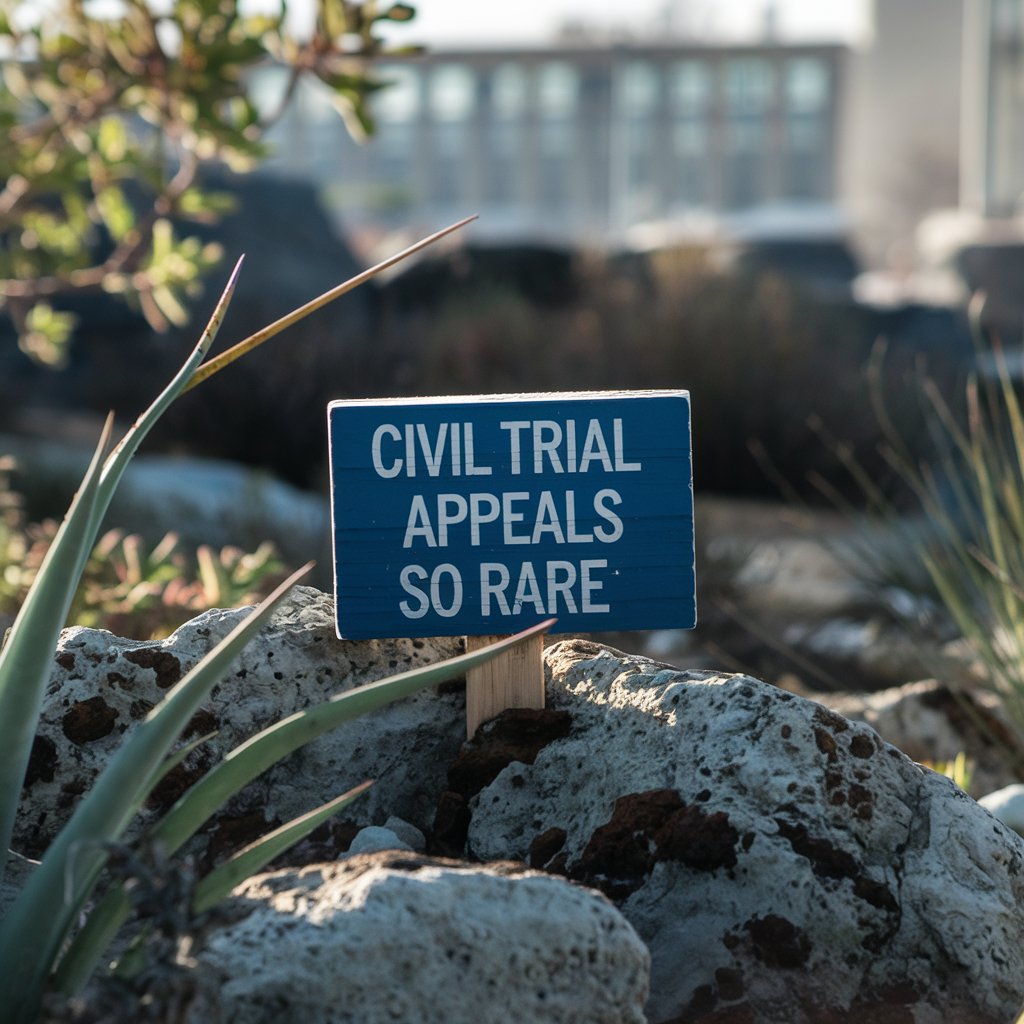Why Aren’t There More Civil Trial Appeals?
If you lose a civil case, or if you don’t get the result you were hoping for, you may have the option to appeal it. Essentially, that means a second chance to get the result you want. But if you look at the numbers, an extraordinarily small number of civil trials are ever appealed.
Why is this the case? And when is it reasonable to consider appealing a civil case?
How Civil Trial Appeals Work
Civil cases take place between private individuals and entities. They often deal with matters related to torts, contracts, and family affairs. The vast majority of civil cases settle outside of trial, with both parties incentivized to avoid the costly and stressful possibility of a court battle. If the case does go to court, it will be decided by a judge or a jury, but even this isn’t always the end of the road.
With the help of an appellate lawyer, it’s possible to appeal the decision and take the case to an appellate court. Typically, at this level, cases are heard by a small panel of judges, who will review the details of the case as it unfolded at the trial-level court. Depending on what they find, they may affirm the decision, essentially reinforcing it, reverse the decision, finding something new, or remand the decision, demanding a new trial.
Costs and Stressors
Appeals can be considerably expensive. They can also be very stressful and time-consuming. Accordingly, people are forced to weigh the potential benefits of winning on appeal with the costs of the process itself.
For example, let’s say you won damages of $10,000 in a civil matter, but you really think that you deserve $20,000. You have the option of appealing this decision in many cases, but would it be worth the extra $10,000? If you appeal this decision, you’ll likely rack up thousands of dollars of legal fees, potentially well in excess of your new winnings, and on top of that, it could take years before the case is finally resolved.
On top of that, there’s no guarantee you’re going to win on appeal, and if you don’t have a good cause of action, your chances of victory might be extremely low.
Attorneys and Representation
Most attorneys are aware of the challenges associated with appealing a decision, so they tend to be very cautious and discerning about the types of appeals they take on.
If you talk to an attorney with experience in appeals, they’ll give you an honest breakdown of your case and a solid recommendation of whether it makes sense to move forward with an appeal. Unless you have very good chances of victory, your case will probably end at the civil trial court level.
Limiting Grounds of Appeal
Appeals are also rare because there are limiting grounds for appeal. You can’t appeal a legal decision just because you don’t like the outcome; instead, you have to pinpoint something wrong with how the trial was conducted or how the finding was reached.
For example:
· Misinterpretation of the law. It’s possible to win an appeal if you can show that there was a significant misrepresentation of the law. For example, if the law was explained or interpreted in an incorrect way, or if an improper statute was cited, you may be able to reverse the decision.
· Poor application of the law. You may also be able to show that the law was applied incorrectly. Poor reasoning and other application errors can help you overturn your decision.
· Problems with the evidence. Issues with the evidence presented may also grant you grounds for an appeal.
· Bad jury instructions. Since most jurors are everyday, average people, they typically don’t understand the intricacies of our legal processes – or how they’re supposed to consider evidence presented to them. That’s why they need jury instructions, which should inform them of how they’re supposed to consider the evidence and operate at trial. If these instructions are incorrect, or if they’re given in an inadequate way, it may be grounds for a retrial.
· Abuse of discretion. Abuse of discretion is an exercise of authority not appropriate for an authority figure, such as a judge. If you feel like your judge decided your case in an unfair way because of ulterior motives or unscrupulous behavior, you may be able to appeal the decision.
· Legal flaws not otherwise covered. Almost any significant legal flaw in your case could be grounds for appeal. The specific examples in this list are just some of the most common.
It’s not possible to appeal a civil trial decision out of spite, anger, or frustration. And even if it was, the costs and extra stress of an appeal make it not worth it for the majority of cases. If you feel like your civil case was decided incorrectly, or that you are the victim of gross injustice, consider contacting an appellate attorney to review your options.






